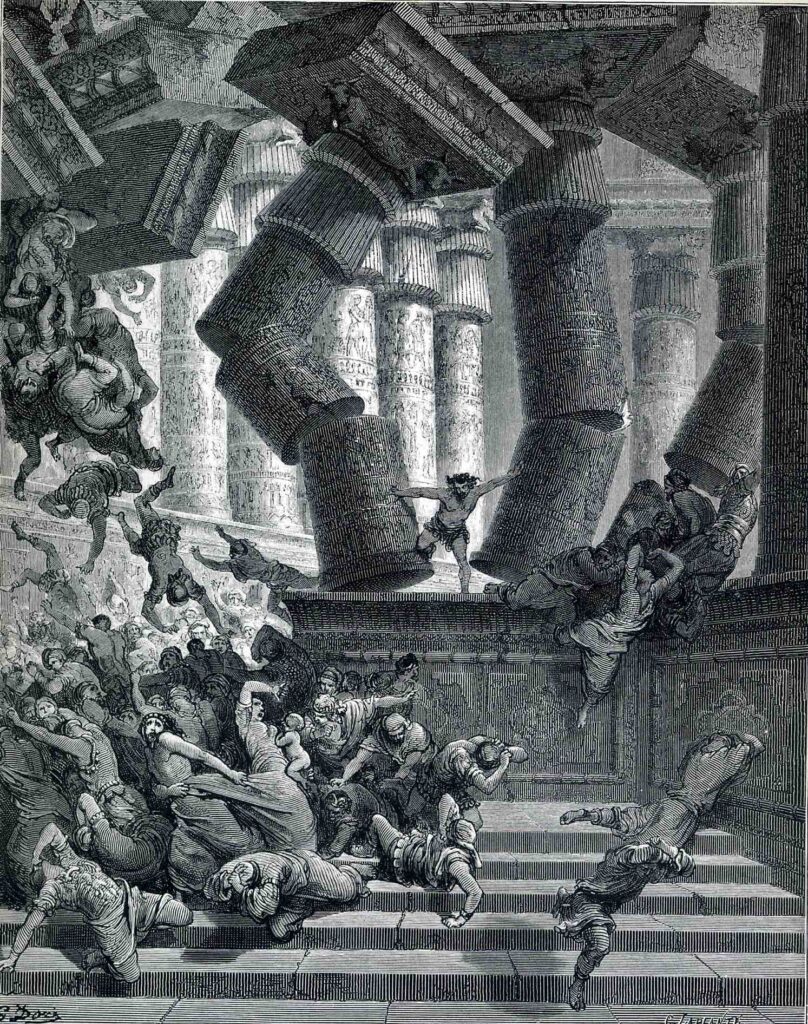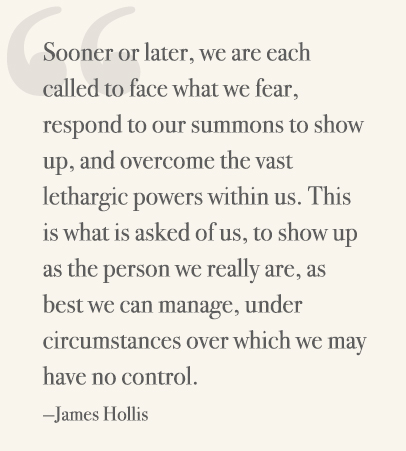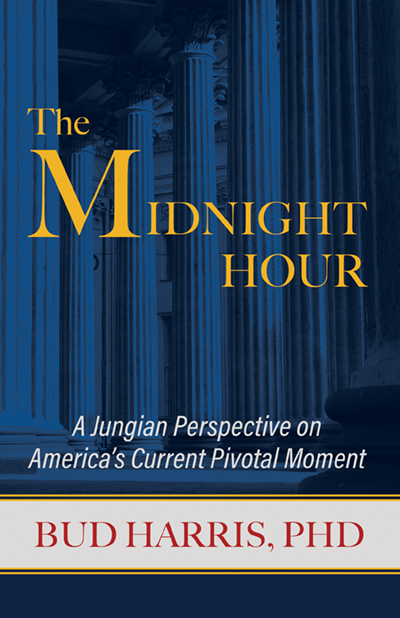
Dear Reader,
The following is a continuation of my blog series based on my book The Midnight Hour: A Jungian Perspective on America’s Pivotal Moment. If you are just now picking up on the series, you might start with the Introduction: Welcome to the Challenges of Change.
I hope that it will help you, as writing it has helped me, to find a candle to contribute to your light.
Whether you agree with me or not, I hope my work helps you clarify your own position, both within and to the chaotic times surrounding us. Above all, I hope it helps you create a new vision of the future and a new hope that draws you to commit to it.
Bud Harris
Asheville, North Carolina
The Midnight Hour:
A Jungian Perspective on America’s Pivotal Moment
Chapter 2: Awakening at Midnight

I hated thinking about writing this book as much as I hated thinking about the election that made it necessary. And as much as I hated enduring the emotions I felt while writing it, Melusina, that flaming bitch of a muse that lives in some dark interior cavern of my soul, wouldn’t let me rest. Although I resisted, she wouldn’t let me alone. When I least expected it, she would lash me with ideas, rage, and despair at the shame of my own prior blindness. So, I finally surrendered, bit the bullet, began listening to her in earnest, and began writing, began speaking the truth to myself that I have resisted for so long.
She urged me to see beyond my daily shock and disgust with our politics and to return to the roots of my Jungian perspective—to search out, once again, the writers, teachers, and speakers who have contributed so much to my life. She knew, before I remembered, that their vision, courage, and dedication to making our lives better and more whole is contagious. I have been re-reading them, listening to them, and absorbing them into my heart in new ways.
For example, when re-reading a piece by Sir Laurens van der Post, I was stunned when I read this question: “Has there ever been another age that, knowing so clearly the right things to do, has so consistently done the wrong ones?” It succinctly echoed my own thoughts. After this election and the events leading up to it, covering decades, I have spent many hours reflecting on what my part in all this tumult has been.
* * * *
The difficulty and loneliness of writing this book was lightened by listening to lectures, talks, and speeches by Carl Jung, Martin Luther King Jr., Elie Wiesel, Maya Angelou, Robert Kennedy, and a varied list of others. Their courage, love, and vision represent the flame of the American spirit that has called out to me over my eight decades of living.
As I listened to these recordings, some of which are very old, I sometimes sank into reverie. For example, imagine presidential candidate Robert Kennedy standing on the back of a flatbed truck at night speaking to a crowd of poor black inner-city residents on one of the darkest nights of the soul in our time—the night Martin Luther King Jr. was assassinated. Imagine him speaking, against the advice of the Indianapolis mayor and police chief not to do so, and joining the people in their shock and grief…and moving them to join him in the quest for peace. Imagine him quoting the ancient Greek poet Aeschylus, saying, “And even in our sleep, pain which cannot forget falls drop by drop upon the heart, until in our own despair, against our will, comes wisdom through the awful grace of God.” Imagine him asking them to join him in taming “the savageness of man” and making gentle the life of this world. He closed by asking that we say a prayer for our country and for our people. How I long for a spirit like that, to find it within myself!
So there I was, listening and beginning to write, hoping to find a spark in the ashes of the American spirit that could be formed into a new flame, or more important, perhaps, to find a spark in the ashes of my own public spirit that could be rekindled.
The usual negative voices that come when I am writing popped up here and there, and one said, “You’re not a politician, a social scientist, or a social commentator. Who do you think you are to be writing this?” I answered “I am one who cares deeply about this country and the spirit that has so far arisen out of its darkest hours. It is the spirit that close friends and family members have fought and died for. It is the spirit that has nourished and inspired parts of my best self, and I care deeply about this spirit living into the world of my children, their children, and their children’s children.”
I know very well that nothing can be changed until it is accepted, experienced, defined, understood, and then acted upon. We cannot become responsible for something we do not admit we have. With these thoughts in mind, I began to write. As I wrote, I wanted to face reality, to seek new understanding, and to fan a new flame within myself and within you. For us to accomplish real change, this flame must come alive in me and you. In reality, essential change can never depend on a candidate or a political party. It must begin in the individual and grow outward.
* * * *
The work of Dr. Jung has inspired and supported my life for over fifty years. During this current, unsettling period, I have done my best to restore my basic approach to his work and to human development as one that values the whole person, the individual. Now I broaden that perspective to encompass the growth, development, and difficulties facing our nation’s social character.
Dr. Jung helps me understand this perspective. The general theme in the Jungian approach is to face the transitional periods, crises, challenges, and problems in our lives as opportunities—actually, demands. This allows us to grow and enlarge who we are in order to live with more hope and satisfaction and discover new defining principles to guide us. Otherwise, we shrink into a state of defensive encapsulation. Dr. Jung emphasizes the need to experience our lives fully, to let meaning penetrate us thoroughly through feeling, thinking, and acting. The process goes something like this: fully engage in and experience life, reflect upon experiences and seek to understand them, bear the burden of conflicts that come up in this process, and then act on them. This enables us to live so that our lives are an expression of our expanded personalities, our self-awareness, and our purpose. In order to allow the emergence of a new version of our lives, the process often calls us to go back through the thickets of old memories that continue to shape us.
As I face, struggle, flounder, and go through these periods in my life, I am reminded of the writings of Thomas Wolfe (a well-known writer from Asheville, my hometown) and his novel You Can’t Go Home Again. The book reveals a deeper meaning in its title. As life progresses, it suggests, we go through transitional periods where we can no longer blindly depend upon the social, economic, and ethical structures in our past to carry us into the future. In every transition in our lives, we will go through a period of feeling inner “homelessness.” I have been shocked into such a place. I have been in that place since the election and am still emerging from it.
In writing this book, I have pursued this quest into our collectively denied realities. No longer can I hide in my illusions of being preoccupied with my own life. I have had to confront new areas in my shadow of rage, despair, disgust, and disappointment—my “inner deplorables.” I have had to face many uncomfortable truths. I have had to look in the mirror and confess that our politics and our government reflect the state of our collective soul. The election of 2016 must shake the very foundation of our conscience.
I have been forced to probe more deeply into the problems of being human in our society than I initially wanted to. I invite you to do the same thing, so that together we can work to change our country and our politics and, therefore, our lives — for the better. All my experiences teach me that facing the reality of our darkness enables us to discover how its energy can become a force for light.
 The above is Chapter 2 of my book The Midnight Hour: A Jungian Perspective on America’s Current Pivotal Moment.
The above is Chapter 2 of my book The Midnight Hour: A Jungian Perspective on America’s Current Pivotal Moment.
BUY FROM YOUR LOCAL INDEPENDENT BOOKSTORE
Book Excerpts and Resources
, 2021, America, being human, Carl Jung, citizenship, Elder Wisdom, fear, hope, living authentically, shadow work
Please stay positive in your comments. If your comment is rude it will get deleted. If it is critical please make it constructive. If you are constantly negative or a general ass, troll or baiter you will get banned. The definition of terms is left solely up to us.
Leave a Reply